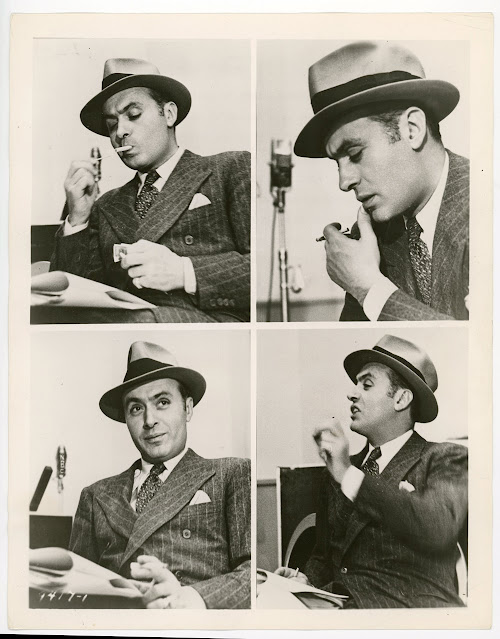The French Lover
by John Baxter
Hardcover ISBN: 9780813155524
University Press of Kentucky
298 pages
November 2021
“For generations of film and theater audiences, Boyer was the archetypal Frenchman — cultivated, courteous, and seductive, yet never quite at home in a culture not his own. The sense of loss conveyed in his murmuring baritone voice was the very essence of romance. Women longed to comfort him; men wanted to become his friend.” — John Baxter
Charles Boyer charmed audiences for decades playing suave and debonair leading men in countless classic films. Audiences swooned at films like The Garden of Allah (1936), Algiers (1938), Love Affair (1939), Madame de... (1953). Boyer terrified us with his intensity in films like the psychological drama Gaslight (1944). His life began and ended with great tragedy but in the middle he found many ways to thrive doing what he loved best: acting.
Charles Boyer: The French Lover by John Baxter offers everything a reader would want out of movie star biography. It's compact, chronological, and concise. It's well-written and thoroughly researched. It offers just the right balance of personal and professional. It never crosses over to sensationalism yet delivers plenty of insights. The reader will come away feeling like they really got to know Charles Boyer as a person and as an actor and will immediately look for movies to watch to extend the experience.
More books like this please!
 |
| Boyer in 1939 rehearsing for his appearance on the radio drama series Hollywood Playhouse. Credit: NBC. Source: University Press of Kentucky |
Some takeaways from the book:
- Boyer came from a place of privilege and the author describes his journey to Hollywood as a progression rather than a struggle.
- Boyer loved reading and amassed a large collection of books (including over 3,000 first editions). He also had a penchant for gambling and smoking.
- He was highly competitive and had a knack for memorizing dialogue. So much so that he would memorize all the parts of a script.
- He was intensely private and turned down interviews whenever he could. Baxter writes “Boyer lived in relative simplicity, with only one other permanent staff member: his double and stand-in Irving “Fig” Newton, whom he kept on retainer. A part-time secretary handled business correspondence and fan mail—which, as an independent, Boyer had to respond to himself, rather than leaving it to a studio press office. He subscribed to no clippings service and did not employ a press agent. Requests for interviews were politely declined.”
- Despite developing a reputation as "the French lover", Boyer was quite the misogynist and was open about his disdain for women. This changed when he met the love of his life Pat Paterson. Baxter writes “Marriage had softened Boyer’s hostility toward women. His new manner was gentler, amused, provocative.”
- He started his career in Hollywood in bit parts or starring in the French productions of American films like The Trial of Mary Dugan and The Big House (my review of the three versions of that film can be found here)
- Boyer insisted on leading roles because he valued his talent and knew that top billing meant top pay and top treatment. After WWII and with the rise of television, he began to take on more character roles in Europe.
- Boyer's father died at a young age. He was met with tragedy later on in life when his son died by suicide and his beloved wife died of cancer. Boyer ended his life two days after Pat's death.
The author goes into detail about Boyer's working relationship with his leading ladies including Irene Dunne, Ingrid Bergman, Jean Arthur and Rita Hayworth. Mia Farrow, who grew up next door to the Boyers, was interviewed for the book and is quoted several times. Not every film is discussed the majority are. I found this a welcome relief as some biographies do try to tackle each and every film and if the subject's filmography is quite extensive this in turn can become quite exhausting. Some notable films discussed include: Red-Headed Woman (1932), Caravan (1934) Liliom (1934), The Garden of Allah (1936), Conquest (1937), Tovarich (1937), Algiers (1938), Love Affair (1939), All This, and Heaven Too (1940), Hold Back the Dawn (1941), The Constant Nymph (1943), Gaslight (1944), Cluny Brown (1944) and many more. There are some light spoilers but I didn't feel like it was necessary to be well-versed in Boyer's filmography to be able to enjoy the book.
If you're a Charles Boyer fan or even mildly interested in him, don't miss out on this excellent biography.
A big thank you to University Press of Kentucky for sending me a copy of the book for review.










